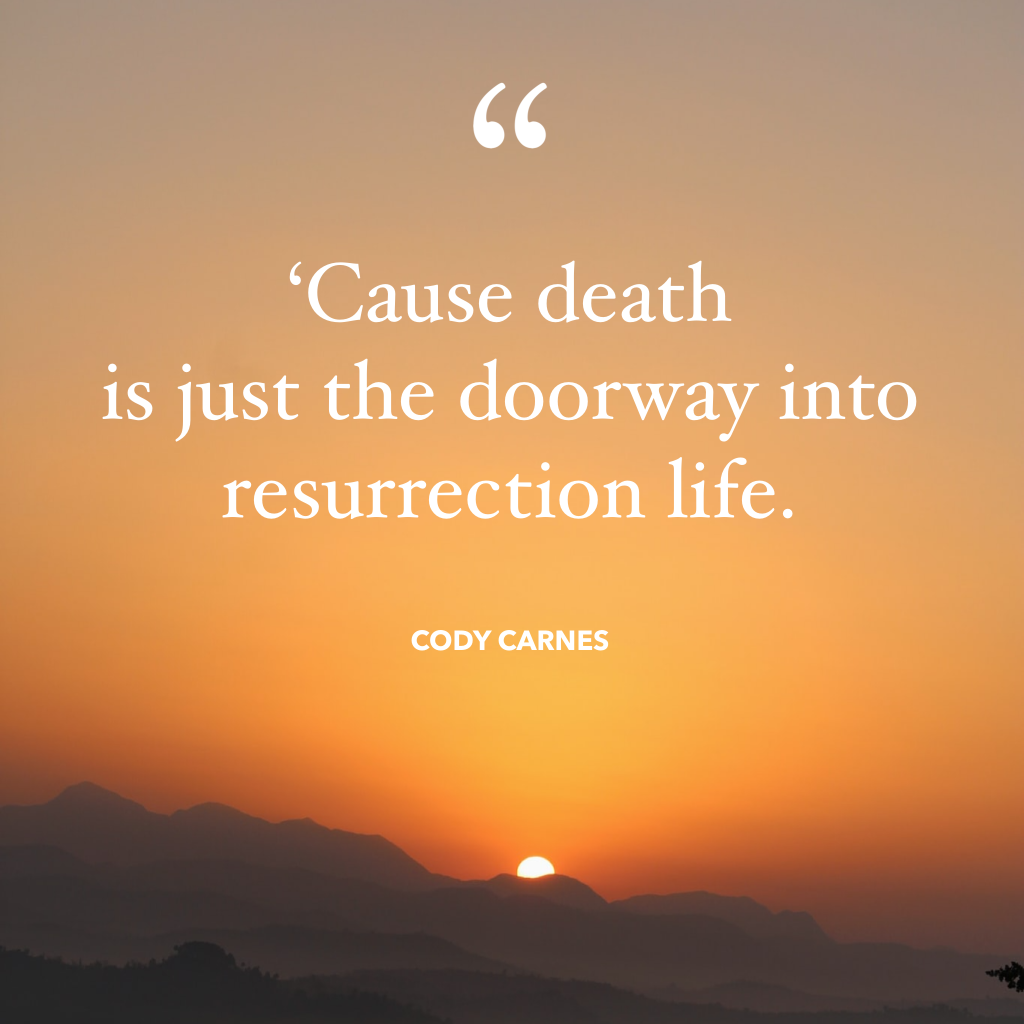ANN H. JUDSON
God has a bright example made of thee,
To show that womankind may be
Above that sex which her superior seems,
Cowley.
About the commencement of the present century, a new field was opened for the display of Christian heroism. The despairing wail of the pagan millions of the East, had reached the ears of a few of the most devoted people of God on these Western shores, and the question arisen, Who shall lead the way to heathen realms, who among us first encounter the perils of an attempt to plant the standard of the Cross beside the pagodas of Buddhism? He who would then go forth, must leave his native land with the parting benediction of but few friends; must be accompanied with few and faint prayers; must make his own path through the tiger-haunted jungles, and face alone the untried dangers of a dubious assault on the strongholds of pagan superstition. But, notwithstanding the discouragements inwoven with the contemplation of the undertaking, and the great peril that must attend its completion, it was magnanimous and sublime, and there were hearts in the land philanthropic enough to embark in it and brave enough to face its terrors without fainting.
Among the foremost Americans who offered their services in this work, were the Rev. Adoniram Judson and his wife. They embarked from Salem, Massachusetts, for Calcutta, with Samuel Newell and lady, on the nineteenth of February, 1812: and five days afterwards Messrs. Hall and Nott, with their wives, and Mr. Rice, sailed from Philadelphia for the same place. The names of these pioneer missionaries are sacred to the memory of all living Christians, and, being embodied in the history of the grandest enterprise of the age, are to be handed down to all future generations.
While all the female portion of this little band, exhibited many excellent traits of character, and worked well while their day lasted, no other one endured so many and so great hardships and trials, encountered such fearful perils, and had such an opportunity to test the strength of the higher virtues, as Mrs. Judson.
Ann Hasseltine was born at Bradford, in Essex county, Massachusetts, on the twenty-second day of December, 1789. She was an active and enthusiastic. child; of a gay disposition, yet thoughtful at times; and before she was seventeen, gave religion that attention which its importance demands.
She became acquainted with Mr. Judson in 1810. He was then a student in the Andover Theological Seminary, preparing for the work of foreign missions A mutual and strong attachment sprang up, and they were married in February, 1812, two weeks before their embarkation for India.
Mr. and Mrs. Judson first halted at Serampore. There, soon after their arrival, they were immersed by an English missionary, having changed their views of the ordinance of baptism on the long voyage across the Atlantic and Indian oceans. From that place they were soon driven by the Directors and Agents of the British East India Company, who were at that time opposed to the introduction of the Christian religion into those parts. They sailed from Madras for Rangoon, on the twenty-second of June, 1813, and settled at the latter place.
From the commencement of missionary toil, Mrs. Judson had many inconveniencies to encounter, but they were met with patience and served to strengthen that energy which, it will be seen, was afterwards so much needed and so strikingly displayed. Four or five years after settling at Rangoon, Mr. Judson went to Chittagong, in a neighboring province, to secure help, some Arracanese converts being there, who spoke the Burman language. He expected to return within three months. “At the expiration of this period, however, when his return was daily expected, a vessel from Chittagong arrived at Rangoon, bringing the distressing intelligence that neither he nor the vessel in which he had embarked had been heard of at that port. Similar tidings were also contained in letters which Mrs. Judson received from Bengal.
“While the missionaries were in this state of fearful suspense, an incident occurred which was well calculated to increase the perplexity and dismay in which they were plunged. Mr. Hough,* who had continued quietly studying the language at the mission house, was suddenly summoned to appear immediately at the court house, and it was rumored among the affrighted domestics and neighbors who followed the officers that came for Mr. Hough, that the king had issued a decree for the banishment of all the foreign teachers. It was late in the afternoon when he made his appearance before the despotic tribunal that was charged with the execution of the imperial decree, and he was merely required to give security for his appearance the following morning; when, as the unfeeling magistrates declared, ‘if he did not tell all the truth relative to his situation in the country, they would write with his heart’s blood. Mr. Hough was detained from day to day on the most flimsy pretences, himself unable to speak the language, and with no one near him who would attempt to explain his situation or vindicate his objects and his conduct. The viceroy whom Mr. and Mrs. Judson had known, had recently been recalled to Ava, and he who now held the reins of the government was a stranger, and, as his family were not with him, Mrs. Judson, according to the etiquette of the court, could not be admitted to his presence. The order which had led to the arrest was found to relate to some Portuguese priests whom the king had banished, and Mr. Hough was at first summoned to give assurance that he was not one of the number, and then detained by the officers in order to extort money for his ransom. He was at length released by order of the viceroy, to whom Mrs. Judson boldly carried the cause and presented a petition which she had caused her teacher to draw up for the purpose.
“The anxiety occasioned by this arrest and its train of petty annoyances, and still more by the protracted and mysterious absence of Mr. Judson, was at this time greatly increased by rumors which reached Rangoon, of an impending war between the English and the Burman governments. There were but few English vessels lying in the river, and the English traders who were in the country were closing their business and preparing to hasten away, at any new indications of hostilities that should be presented. The condition of the missionaries was rendered still more distressing by the ravages of the cholera, which now, for the first time made its appearance in Burmah, and was sending its terrors throughout the empire. The poor people of Rangoon fell in hundreds before its frightful progress. The dismal death-drum continually gave forth its warning sound as new names were added to the melancholy list of victims to the desolating malady. In these gloomy circumstances, they saw ship after ship leave the river, bearing away all the foreigners who were in the province, until at length the only one remaining was on the eve of sailing. Harassed with doubts concerning the uncertain fate of Mr. Judson, and surrounded with perils, they saw before them what appeared the last opportunity of leaving the country, before the threatened hostilities should begin, and they should be exposed to all the merciless cruelties of barbarian warfare.
“Mr. and Mrs. Hough decided to go on board and escape to Bengal, while escape was still in their power, and they urged Mrs. Judson to accompany them. She at length reluctantly yielded to their advice, and with a heart burdened with sorrows she embarked with her companions, on the fifth of July, in the only ship that remained to carry them from the country. The ship, however, was delayed for several days in the river, and was likely to be subjected to still further detention. Mrs. Judson, who had gone on board rather in obedience to the entreaties of her associates, and the dictates of prudence, than from the suggestions of that truer instinct which often serves to guide the noblest natures in great emergencies, now decided to leave the ship and return alone to the mission house, there to await either the return of her husband, or the confirmation of her worst fears respecting his fate. It was a noble exhibiton of heroic courage, and gave assurance of all the distinguished qualities which, at a later period and amid dangers still more appalling, shone with unfailing brightness around the character of this remarkable woman. The event justified her determination; and, within a week after her decision was taken, Mr. Judson arrived at Rangoon, having been driven from place to place by contrary winds and having entirely failed of the object for which he undertook the voyage.”**
In the summer of 1890, Mrs. Judson’s health had become so far undermined by the deleterious influences of the climate, that it was deemed necessary that she should go to Calcutta for medical advice, better physicians being located there than in Rangoon. She was so feeble that her husband was obliged to accompany her. She was soon removed to Serampore, where were eminently skillful physicians and a purer atmosphere. Her health so improved in six months that she returned with her husband to Rangoon. The malady which had afflicted her was the chronic liver complaint. It was not entirely removed at Serampore, and a few months after her return, it began to distress her more than ever. It was now thought that nothing but a visit to her native land could save her. Accordingly, on the twenty-first of August, 1891, she started for Calcutta, where, after some delay, she found a ship bound to England, by which route she returned, reaching New York on the twenty-fifth of September, 1822.
She remained in this country nine months, During that short period, aside from paying a visit to her relations, she attended the Triennial Convention at Washington, held in May, 1823; visited the larger cities North and South; attended numerous meetings of female associations; and prepared a history of the Burman mission which was so ably written that even the London Quarterly Review, and, if we mistake not, other English periodicals of high critical character, noticed it in commendatory terms.
The following extracts from letters written to Dr. Wayland while in this country, show the interest she took in the affairs of Burmah while absent from that land of her adoption. Under date of “Baltimore, January twenty-second, 1823,” she says, “I want the Baptists throughout the United States to feel, that Burmah must be converted through their instrumentality. They must do more than they have ever yet done. They must pray more, they must give more, and make greater efforts to prevent the Missionary flame from becoming extinct. Every Christian in the United States should feel as deeply impressed with the importance of making continual efforts for the salvation of the heathen, as though their conversion depended solely on himself. Every individual Christian should feel himself guilty if he has not done and does not continue to do all in his power for the spread of the gospel and the enlightening of the heathen world. But I need not write thus to you. You see, you feel the misery of the heathen world. Try to awaken Christians around you. Preach frequently on the subject of Missions. I have remarked it to be the case, when a minister feels much engaged for the heathen, his people generaly partake of his spirit.”
Writing from Washington in the following March she says, “I long to be in Rangoon, and am anxiously hoping to get away in the spring. Do make inquiries relative to the sailing of ships from Boston and Salem. I must not miss one good opportunity.”
With her health much improved though not fully restored, she sailed for her Burman home on the twenty-second of June, 1823, and reached Rangoon on the fifth of the following December. She found the work of the mission prospering. The next year, however, a war broke out between the Burman government and the English in Bengal, and, not only suspended the operations of the missionaries, but jeopardised their lives. They were supposed to be spies employed by the English government. Mr. and Mrs. Judson, with Dr. Price, another of the missionaries, were at that time at Ava, where the imperial government of the Burman Empire had just been removed.
“It was on the eighth of June, 1824, that a company of Burmans, headed by an officer, and attended by a ‘spotted-faced son of the prison,’ came to the mission house, and, in the presence of Mrs. Judson seized her husband and Dr. Price, and after binding them tight with cords, drove them away to the court house. From this place they were hurried, by order of the king, without examination, to a loathsome dungeon, known as ‘the death prison,’ where along with the other foreigners they were confined, each loaded with three pairs of fetters and fastened to a long pole, so as to be incapable of moving. Meanwhile, Mrs. Judson was shut up in her house, deprived of her furniture and of most of her articles of property, and watched for several days by an unfeeling guard, to whose rapacious extortions and brutal annoyances she was constantly exposed, without being able to make any exertion for the liberation of the prisoners, or the mitigation of their cruel sentence. She however, at length succeeded in addressing a petition to the governor of the city, who had the prisoners in charge. By a present of one hundred dollars to his subordinate officer, their condition was somewhat meliorated, and by the unwearied perseverance of Mrs. Judson, and her affecting appeals to the sympathies of the governor, he was induced to grant her occasional permission to go to the prison, and at length to build for herself a bamboo shed in the prison yard, where she took up her abode, in order that she might prepare food for the prisoners, and otherwise minister to their necessities.
“At the end of nine months they were suddenly removed from Ava to Amarapura, and thence to a wretched place several miles beyond, called Oung-pen-la, where it was arranged that they should be put to death in presence of the pakah-woon, as a kind of sacrifice in honor of his taking command of a new army of fifty thousand men about to march against the English. This sanguinary chief had been raised from a low condition to the rank of woongyee; but in the height of his power, just as he was about to march at the head of the army he had mustered, he fell into disgrace, was charged with treason, and executed, at an hour’s notice, with the unqualified approbation of all classes of people at Ava. His timely execution saved the missionaries from the fate which hung over them, and they were left uncared for in the miserable cells of Oung-pen-la, till the near approach of the English to the capitol induced the king to send for Mr. Judson, to accompany the embassy that was about to start for the English camp, for the purpose of averting the destruction that now threatened the Golden City.
“During this period of a year and a half Mrs. Judson followed them from prison to prison, beneath the darkness of night and the burning sun of noon-day, bearing in her arms her infant daughter, – the child of sorrow and misfortune, who was born after the imprisonment of its father, – procuring for them food which Burman policy never supplies to prisoners, and perpetually interceding for them with their successive keepers, with the governor of the city, with the kinsmen of the monarch, and the members of the royal household. More than once the queen’s brother gave orders that they should be privately put to death; but such was the influence which Mrs. Judson possessed over the mind of the governor, that he evaded the order each time it was given, and assured her that for her sake he would not execute her husband, even though he was obliged to execute all the others. And when at last they were to be taken from his jurisdiction and driven to the horid prison-house of Oung-pen-la, at the command of the pakah-woon, the old man humanely summoned Mrs. Judson from the prison where he had permitted her to go and sit with her husband, in order that she might be spared the pangs of a separation which he had not the power to prevent. Her own pen has traced, in lines that will never be forgotten by those who read them, the affecting history of the dismal days and nights of her husband’s captivity. We follow her alike with admiration and the deepest sympathy as she takes her solitary way from Ava, at first in a boat upon the river, and then in a Burman cart, in search of the unknown place to which the prisoners have been carried. At length, overcome with fatigue, with exposure, and the bitter pangs of, hope deferred, we see her in a comfortless cabin, prostrate with disease and brought to the very gates of death, -while her infant is carried about the village by its father in the hours of his occasional liberation, to be nourished by such Burman mothers as might have compassion on its helpless necessities.
“Such is a single scene from this melancholy record of missionary suffering. History has not recorded: poetry itself has seldom portrayed, a more affecting exhibition of Christian fortitude, of female heroism, and all the noble and generous qualities which constitute the dignity and glory of woman. In the midst of sickness and danger, and every calamity which can crush the human heart, she presented a character equal to the sternest trial, and an address and fertility of resources which gave her an ascendency over the minds of her most cruel enemies, and alone saved the missionaries and their fellow captives from the terrible doom which constantly awaited them. Day after day and amid the lonely hours of night was she employed in conciliating the favor of their keepers, and in devising plans for their release, or the alleviation of their captivity. Sometimes, she confesses, her thoughts would wander for a brief interval to America and the beloved friends of her better days; ‘but for nearly a year and a half, so entirely engrossed was every thought with present scenes and sufferings, that she seldom reflected on a single occurrence of her former life, or recollected that she had a friend in existence out of Ava.’ “***
When peace was declared between the two powers, by the terms of negotiation, the European prisoners were all released; and thus closed the long and brutal incarceration of the missionaries. Mr. and Mrs. Judson immediately departed for Rangoon. They soon removed to Amherst, a new town on the Salwen or Martaban river. After having established a mission there, Mr. Judson had occasion to visit Ava. He started on the fifth of July, 1826, leaving his wife and infant daughter in the care of kind friends. He was detained at the Capital longer than he had anticipated; and before he returned he received the painful intelligence that his wife was dead. “A remittent fever had settled on her constitution, already enfeebled by suffering and disease, and she died on the twenty-fourth of October, 1826, amid the universal sorrow, alike of the English residents at Amherst and of the native Christians who had gathered around her at her new home. Her infant daughter died a few weeks afterwards, and side by side they were laid to rest, under a large hopia tree a few rods from the house where she had resided. Two marble stones, procured by the contributions of several female friends in her native land, are the humble memorial that marks the spot where sleeps one whose “name will be remembered in the churches of Burmah, in future times, when the pagodas of Gaudama shall have fallen; when the spires of Christian temples shall gleam along the waters of the Irrawaddy and the Salwen: and when the ‘Golden City’ shall have lifted up her gates to let the King of Glory in.”
* Mr Elough was a printer in the employment of the Baptist Board
AUTHOR.
** Gammell’s History of American Baptist Missions
*** Gammell
______
Excerpted from Noble Deeds of American Women
(Patriotic Series for Boys and Girls)
Edited by J. Clement
——
With an Introduction by Mrs. L. H. Sigourney
Illustrated
BOSTON: Lee and Shepard, Publishers
Entered by Act of Congress, in the year of 1851,
by E. H. Derby and Co., in the Clerk’s Office of the Northern District of New York
______





